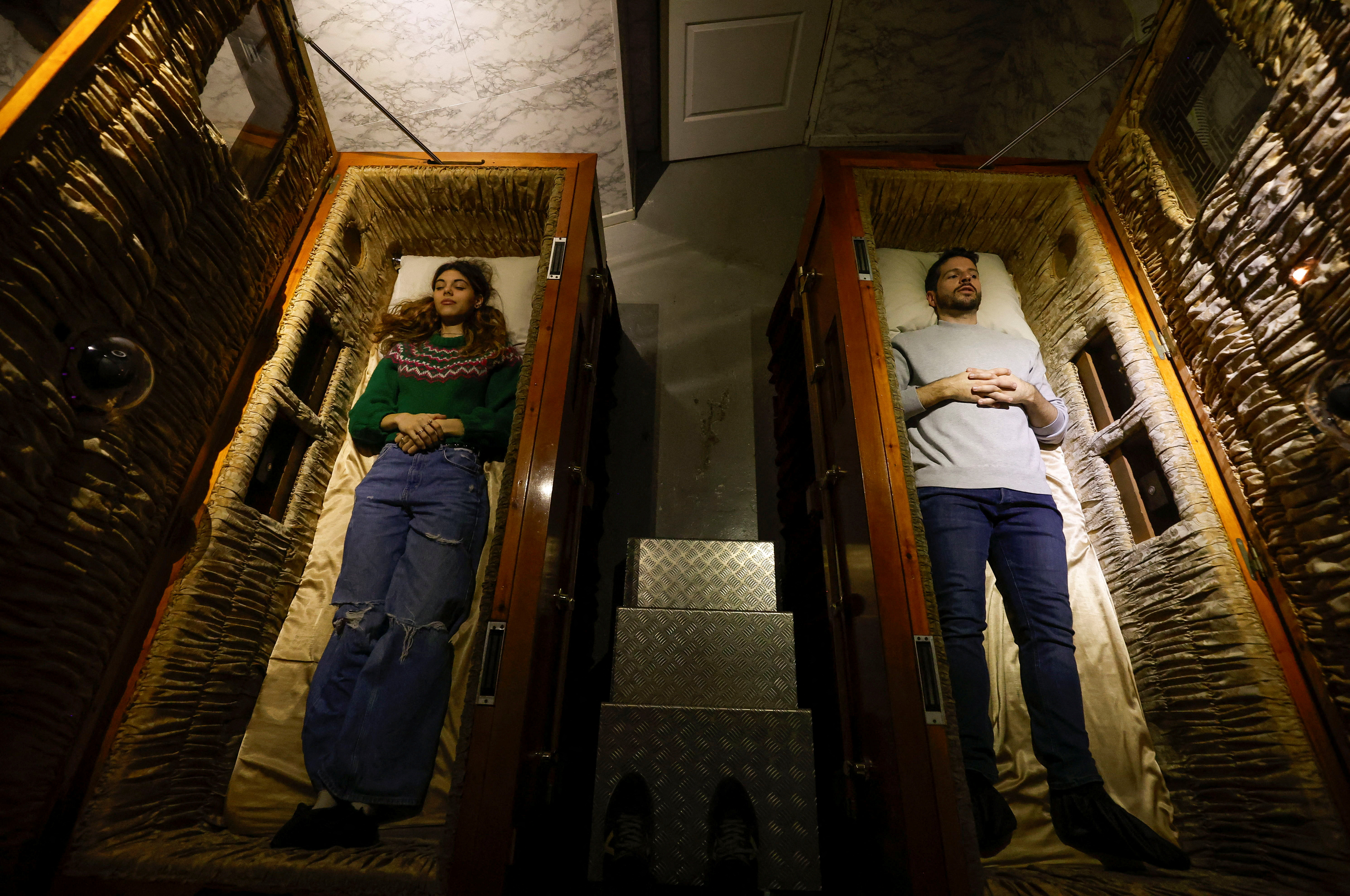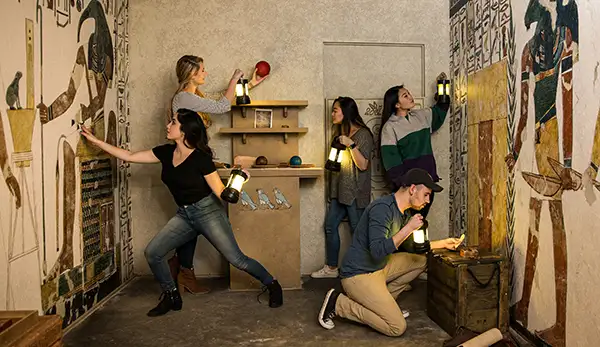Escape Room Minneapolis Mall of America-- Immersive and Fun
Escape Room Minneapolis Mall of America-- Immersive and Fun
Blog Article
Team Strategies: Exactly How to Collaborate Efficiently in an Escape Area
Groups should proactively listen to each member's insights, assign roles that straighten with private staminas, and keep normal check-ins to make certain focus and prevent redundancy. By fostering an environment that values communication and versatility, groups can significantly heighten their effectiveness and success rates.
Establish Clear Communication

To facilitate clear interaction, it is necessary to designate a main factor of contact for information dissemination. This duty involves summing up findings and proposed techniques to make certain every person stays on the exact same web page. Furthermore, adopting a methodical method to discussions can protect against disorderly exchanges. For circumstances, quick, focused updates from each staff member can keep the group educated without overwhelming them with info.

Assign Duties Strategically
While clear interaction establishes the structure for efficient teamwork, assigning roles tactically makes sure that each group participant's staminas are used effectively. In a getaway room circumstance, the time-sensitive and complicated nature of difficulties requires an efficient technique to job delegation. By recognizing and leveraging individual proficiencies, teams can maximize their analytical capacities and boost general performance.
A person with a keen eye for detail could excel in locating covert objects, while a rational thinker could be better suited to fixing challenges. This duty typically requires strong organizational and social abilities.
Second, make sure that functions are flexible and adaptable. As brand-new obstacles arise, the team should have the ability to pivot, reapportioning tasks as required. This adaptability helps keep energy and prevents bottlenecks that can take place as a result of inflexible function tasks.
Eventually, a strategic approach to function assignment not only optimizes the staminas of each employee yet additionally fosters a cohesive setting, driving the team in the direction of a successful escape.
Make Use Of Diverse Abilities
Recognizing and using the diverse skills within your team can dramatically boost your performance in a retreat area. Each employee brings distinct staminas to the table, and properly leveraging these capacities can accelerate problem-solving and enhance general effectiveness. For instance, an employee with strong logical abilities might excel at understanding intricate codes or patterns, while one more with keen empirical abilities might swiftly find hidden hints that others could forget.
Efficient interaction is key to using these varied abilities. Encourage employee to voice their insights and concepts promptly, making sure that all prospective remedies are taken into consideration. This comprehensive strategy promotes a dynamic setting where imagination and critical thinking can escape room in minneapolis prosper. Additionally, assigning jobs that straighten with each participant's toughness can avoid traffic jams and guarantee that progress is constant.
Additionally, variety in abilities typically equates to diversity in believing styles, which is invaluable in an escape area setup. While some challenges might need rational thinking and precision, over here others could benefit from imaginative and association of ideas. By identifying and leveraging this diversity, teams can attend to a wider array of obstacles much more efficiently, consequently boosting their chances of a successful getaway.
Manage Time Effectively

Identify visible challenges and divide tasks based on group members' staminas, ensuring that nobody is idle. This method can assist maintain the group focused and stop time from slipping away undetected.
Furthermore, avoid tunnel vision. If a problem is taking also long, turn team members or proceed to another difficulty, returning later on with fresh viewpoints. Communication is extremely important-- maintain every person upgraded on resolved challenges and continuing to be tasks to prevent redundant initiatives.
Finally, make use of any tips or ideas sparingly yet strategically - best escape room. Understanding when to ask for help can save important time. By adhering to these time administration principles, groups can significantly boost their possibilities of a successful and enjoyable getaway room experience
Debrief and Show
Representation is a necessary facet of group advancement and enhancement in the context of escape rooms. Once the obstacle is completed, whether effectively or otherwise, it is essential for the group to participate in an organized debriefing session. This process allows employee to analyze their efficiency, identify staminas, and pinpoint areas for renovation.
Begin the debrief by discussing click to investigate what worked out. Highlight particular circumstances of effective interaction, analytic, and collaboration. Acknowledging these favorable actions enhances them and encourages their repeating in future difficulties.
Following, deal with the barriers came across. Go over minutes of complication, miscommunication, or inadequate methods. Urge an open and useful discussion where employee can share their viewpoints without worry of objection. This cultivates a society of constant enhancement and learning.
Conclusion
In final thought, successful collaboration in a retreat area is asserted upon clear communication, tactical duty projects, the effective application of varied skills, and efficient time management. By developing a natural and flexible team atmosphere, the chance of efficiently solving problems and attaining the objective of leaving the room is substantially enhanced.
Report this page